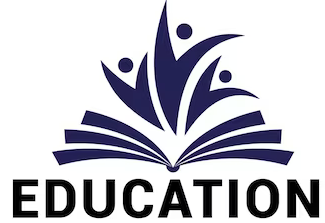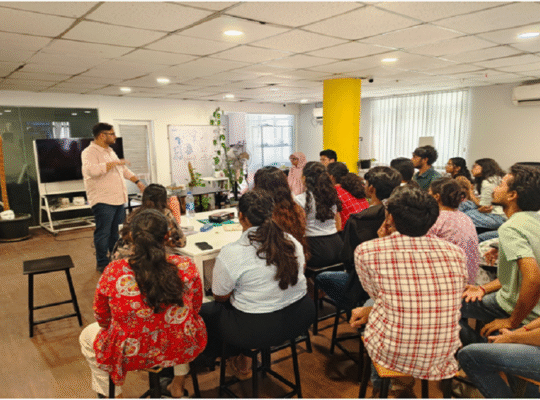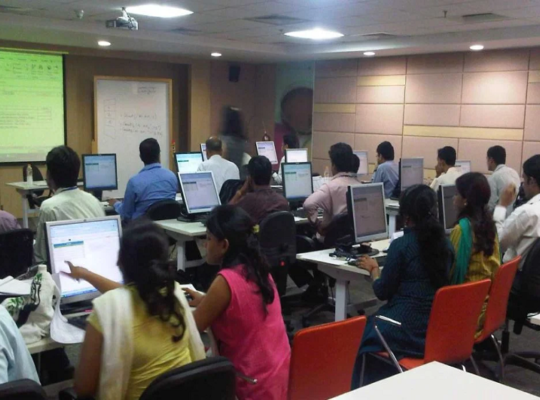If you’re thinking about jumping into the Finance and Insurance (F&I) world, you’re in the right place. But here’s the thing: picking the right school to get you there can feel a little overwhelming. I remember when I was trying to decide where to study—I wanted to find something that would not only set me up for success but also actually prepare me for the realities of the job. After all, this is a career path that can really take off, but only if you’ve got the right foundation. So, how do you choose the right F&I school? Let’s break it down.
Why the Right F&I School Makes All the Difference
First things first: choosing the right school isn’t just about where you get your certificate. It’s about what that education will do for you in the real world. Being an F&I professional is a pretty big deal—you’re handling the financial side of car deals, working with clients to find the best insurance, and making sure everything is compliant with the law. It’s a job that mixes sales with financial know-how, and it pays well if you’ve got the right skills.
When I first started thinking about F&I, I thought, “I can just pick any school, right?” Well, no. A lot of things can look good on paper, but not all schools are going to prepare you for the challenges you’ll face in the field. You need something that’s not only accredited but also respected within the industry. Otherwise, you’re just wasting time and money.
Check for Accreditation and Industry Reputation
Okay, this might sound a little dry, but stick with me. You want a school that is accredited. Why? Because accreditation means the school meets certain standards set by the industry. This is important because employers want to know that the education you received is up to snuff. Trust me, a school with a solid reputation is going to open more doors for you down the road.
I spent hours looking at reviews, talking to former students, and checking out where graduates were getting hired. It made such a difference in my decision. It wasn’t just about the name of the school—it was about the value that the degree or certification would have in the marketplace. You don’t want to be just another certificate-holder; you want to stand out.
Get a Solid, Well-Rounded Curriculum
When you’re looking at F&I schools, take a good look at their curriculum. Does it cover everything you need to know, like financing options, insurance products, and compliance issues? You’ll want a program that balances the technical side (like understanding loan structures and contracts) with the customer service aspect (because that’s a huge part of this role). Trust me, the job isn’t just about numbers—it’s about building relationships with clients and guiding them through what can be a pretty complicated process.
One thing I loved when I found the right school was how they emphasized not just theory, but real-world application. They gave me a chance to role-play, take mock calls, and get feedback on my communication skills. It felt less like sitting in a classroom and more like preparing for an actual job. That was a game-changer for me.
Look for Job Placement Support and Industry Connections
Here’s the truth: getting hired can be tough, especially in competitive fields. But if your school has strong industry connections, your chances of landing a job right after graduation go way up. I can’t stress enough how important it is to go to a school that’s plugged into the industry. They’ll likely have relationships with dealerships and financial institutions, which means they can help you network and get your foot in the door.
Some schools even have job placement services that help you with resumes, interviews, and connecting with potential employers. I was lucky enough to attend a school that offered these services, and I can honestly say it made the job search so much easier. Don’t overlook this part—finding a school that helps you transition from student to professional is a big win.
Flexibility: Online or In-Person?
Now, here’s where things get personal. Everyone learns differently, right? I was juggling a job while going to school, so I opted for an online program. For me, it was a lifesaver. I could study at my own pace, attend classes in my pajamas (yes, really), and still manage my work-life balance.
But online isn’t for everyone. If you thrive in a classroom environment where you can ask questions in real-time and get immediate feedback, then maybe an in-person program is better for you. Both options can be equally valuable, but it’s about what suits your learning style. Trust your gut on this one.
Price Matters, But Don’t Sacrifice Quality
Let’s talk about the elephant in the room: cost. Education isn’t cheap, and while it’s tempting to go for the least expensive option, it’s important to weigh that against the quality of the program. I get it; we all have budgets. But think of this as an investment in your future. A good F&I school will pay for itself in the long run, especially if it helps you land a high-paying job right out of the gate.
I spent a little extra on my school, but it was worth every penny. Look for scholarships, financial aid, or payment plans if cost is a concern. Some schools even offer discounts for early registration or group enrollments, so keep an eye out for those deals.
Stay Ahead with Continuing Education
The world of finance and insurance is always changing—new laws, new products, new tech. To stay competitive, you’ll need to keep learning. That’s why I love schools that offer ongoing education or certification programs after graduation. It’s not about stopping once you get your certificate; it’s about continuing to grow and adapt to the ever-evolving industry.
Even now, years after graduation, I still take advantage of webinars, workshops, and additional certifications. Trust me, staying updated on industry trends will make you more marketable and help you move up the career ladder.
Wrapping Up
Choosing the right F&I school is a big decision. You want to make sure the school you pick aligns with your career goals, offers a comprehensive curriculum, and has the support to help you succeed long after you finish your courses. Take your time, do your research, and find the school that feels like the right fit for you.
If you’re not sure where to start, check out best F&I Schools to get an idea of what’s out there. After all, your education is the foundation for everything that comes next in your F&I career. Make sure it’s one you’re proud to build on!








